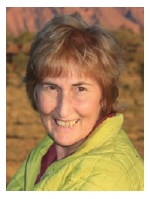Petroleum systems analysis of the northern Houtman Sub-basin
Lisa Hall A B , Emmanuelle Grosjean A , Irina Borissova A , Chris Southby A , Ryan Owens A , George Bernardel A and Cameron Mitchell AA Geoscience Australia, Cnr Jerrabomberra Avenue and Hindmarsh Drive, Symonston, ACT 2609, Australia.
B Corresponding author. Email: lisa.hall@ga.gov.au
The APPEA Journal 57(2) 755-761 https://doi.org/10.1071/AJ16026
Accepted: 9 March 2017 Published: 29 May 2017
Abstract
Interpretation of newly acquired seismic data in the northern Houtman Sub-basin (Perth Basin) suggests the region contains potential source rocks similar to those in the producing Abrolhos Sub-basin. The regionally extensive late Permian–Early Triassic Kockatea Shale has the potential to contain the oil-prone Hovea Member source interval. Large Permian syn-rift half-graben, up to 10 km thick, are likely to contain a range of gas-prone source rocks. Further potential source rocks may be found in the Jurassic–Early Cretaceous succession, including the Cattamarra Coal Measures, Cadda shales and mixed sources within the Yarragadee Formation.
This study investigated the possible maturity and charge history of these different source rocks. A regional pseudo-3D petroleum systems model was constructed using new seismic interpretations. Heat flow was modelled using crustal structure and possible basement composition determined from potential field modelling, and subsidence analysis was used to investigate lithospheric extension through time. The model was calibrated using temperature and maturity data from nine wells in the Houtman and Abrolhos sub-basins. Source rock properties are assigned based on an extensive review of total organic carbon, Rock Eval and kinetic data for the offshore northern Perth Basin.
Petroleum systems analysis results show that Permian, Triassic and Early Jurassic source rocks may have generated large cumulative volumes of hydrocarbons across the northern Houtman Sub-basin, whereas the Middle Jurassic–Cretaceous sources remain largely immature. However, the timing of hydrocarbon generation and expulsion with respect to trap formation and structural reactivation is critical for the successful development and preservation of hydrocarbon accumulations.
Keywords: Houtman Sub-basin, Kockatea Shale, Perth Basin, petroleum systems analysis, source rocks.

Lisa Hall is a Senior Research Scientist in Geoscience Australia’s Resources Division, Energy Systems Branch. Her current research is focused on hydrocarbon prospectivity assessments and petroleum systems modelling in a variety of Australian basins. Lisa holds an MSc in Geology and Geophysics from Cambridge University (1999) and a DPhil in structural geology and neotectonics from Oxford University (2003). She is a member of PESA. |

Emmanuelle Grosjean is senior geochemist in Geoscience Australia’s Resources Division, Energy Systems Branch. She received her PhD in organic geochemistry from the University of Strasbourg (France) in 2002, and subsequently spent 3 years at the Massachusetts Institute of Technology working on the Precambrian petroleum systems of the South Oman Salt Basin. Emmanuelle joined Geoscience Australia in 2005 as a petroleum geochemist to work on the detection of natural hydrocarbon seepage in Australia. She has since been involved in several studies focused on understanding the petroleum prospectivity of Australia’s sedimentary basins, including the Perth and Browse basins. |

Irina Borissova is a senior geoscientist in Geoscience Australia’s Resources Division, Energy Systems Branch. She graduated from Moscow State University and in 1985 gained a PhD from the Russian Academy of Sciences in marine geology and tectonics. Since joining Geoscience Australia in 1993, Irina has contributed to several projects, particularly to geological studies of frontier areas, including the Kerguelen and Naturaliste Plateaus and the Mentelle Basin. Irina has been working on petroleum prospectivity assessments of the south-west margin sedimentary basins since 2004. Currently she is Section Leader for Energy Frontiers and is leading the northern Houtman Sub-basin prospectivity study. Irina is a member of PESA. |

Chris Southby is a geoscientist in Geoscience Australia’s Resources Division, Energy Systems Branch. He completed his Honours at Australian National University in 2004 on palaeoclimate geochemistry of corals from Papua New Guinea. Since joining Geoscience Australia in 2005, Chris has contributed to several projects under the National CO2 Infrastructure Plan including the CO2 Storage Potential of the Vlaming Sub-basin. Chris is currently contributing to seismic structural and stratigraphic interpretation of the Houtman Sub-basin. He is a member of PESA. |

Ryan Owens is a geoscientist in Geoscience Australia’s Resources Division, Energy Systems Branch. He graduated from the Australian National University in 2007 with a BSc(Hons) in Geology. Subsequently Ryan worked in mineral exploration before undertaking a PhD in paleoceanography at the Research School of Earth Sciences, Australian National University. Ryan joined the northern Houtman Sub-basin prospectivity study in 2015 after completing the Geoscience Australia graduate program. He is a member of PESA. |

George Bernardel is a geoscientist in Geoscience Australia’s Resources Division, Energy Systems Branch. George graduated from Sydney University in 1986 with Honours in geophysics. Since joining Geoscience Australia in 1995 he has been involved in marine seismic acquisition and has contributed to several projects, particularly to geological studies of frontier areas, including the Lord Howe Rise, Great Australian Bight and Perth Basin. George has been working on petroleum prospectivity assessments of the west Australian margin sedimentary basins since 2005. |

Cameron Mitchell has been a senior geoscientist in Geoscience Australia’s Energy Systems Branch for over 10 years and is currently working in the Houtman and Lord Howe Rise. He has also worked on regional tectonostratigraphic studies of the deep-water Otway and Sorell basins, prospectivity studies and CO2 storage assessments (in the Gippsland Basin) and offshore seismic survey planning. Prior to this, Cameron was the Chief Scientist of the 2007 Great Australian Bight sampling survey and has carried out satellite and magnetic acquisition projects. Cameron graduated with a BSc(Hons) in geology from the Australian National University in 2000. He is a member of PESA and EAGE. |
References
Beardsmore, G. (2005). High-resolution heat-flow measurements in the Southern Carnarvon Basin, Western Australia. Exploration Geophysics 36, 206–215.| High-resolution heat-flow measurements in the Southern Carnarvon Basin, Western Australia.Crossref | GoogleScholarGoogle Scholar |
Borissova, I., Southby, S., Hall, L., Grosjean, E., Bernardel, G., Owens, R., and Mitchell, C. (2017). Geology and hydrocarbon prospectivity of the northern Houtman Sub-basin. The APPEA Journal 57, 709–715.
Cooper, G., Xiang, R., Agnew, N., Ward, P., Fabian, M., and Tupper, N. (2015). A systematic approach to unconventional play analysis: the oil and gas potential of the Kockatea Shale and Carynginia Formation, north Perth Basin, Western Australia. The APPEA Journal 55, 193–214.
Ghori, K. A. (2015). Petroleum systems of the Perth Basin, Western Australia. AAPG Datapages/Search and Discovery Article #90217. Available at http://www.searchanddiscovery.com/abstracts/html/2015/90217ice/abstracts/2175174.html.
Jorgensen, D. C., Jones, A. T., Kennard, J. M., Mantle, D., Robertson, D., Nelson, G., Lech, M., Grosjean, E., and Boreham, C.J. (2011). Offshore northern Perth Basin well folio. Record 2011/09, Geoscience Australia, Canberra. Available at www.ga.gov.au/metadata-gateway/metadata/record/gcat_71568
Pfahl, M. (2011). Tectonic subsidence, thermal history and petroleum system modelling of the offshore northern Perth Basin, Western Australia. BSc(Hons) Thesis, Australian School of Petroleum, The University of Adelaide, Australia.
Rollet, N., Jones, A., Kennard, J., Nicholson, C., Grosjean, E., Mantle, D., Bernardel, B., Greinert, J., Kempton, R., Langhi, L., Zhang, Y., Hall, L., Hackney, R., Johnston, S., Boreham, C., Jorgensen, D., Robertson, D., and Petkovic, P. (2013). Northern extension of active petroleum systems in the Perth Basin – an integrated stratigraphic geochemical, geomechanical and seepage study. In ‘The Sedimentary Basins of Western Australia 4: Proceedings of the Petroleum Exploration Society of Australia Symposium’, 18-21 August 2013, Perth, Western Australia. (Eds S. J. Moss, M. Keep).
Tupper, N., Matthews, E., Cooper, G., Furniss, A., Hicks, T., and Hunt, S. (2016). The Waitsia Field, onshore North Perth Basin, Western Australia. The APPEA Journal 56, 29–44.
| The Waitsia Field, onshore North Perth Basin, Western Australia.Crossref | GoogleScholarGoogle Scholar |


